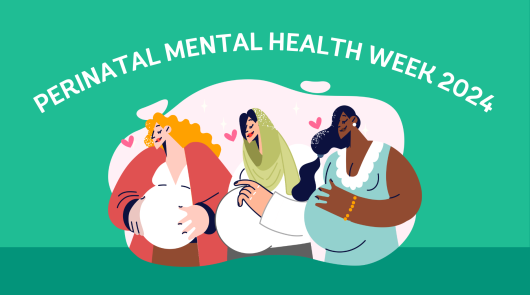
Enjoying a few laughs together proved to be a popular way to celebrate Mental Health Month 2021. 400 people from all over Australia registered to join Flourish Australia’s free Let's Do Lunch & Laugh webinar with Comedian Mark McConville, on October 29.
It’s been a challenging year for us all, so we wanted to create an opportunity to connect, through laughter, and learn to self-care using humour, in our own lives.
A Welcome to Country by Donna Ingram, highlighted the value of generational connections. Acknowledging people with lived experience, Fay Jackson, for our Community Advisory Council, shared that laughter plays a big part in keeping herself well. Board Chair Professor Elizabeth More said “There is an interdependence between tragedy and comedy. Comedians like Mark, who have lived experience, can help us to see things with fresh eyes.”
Mark has carved out a unique career, blending his talent for side-splitting stand-up comedy, with his heart for sharing all that he has learned about the benefits of humour and laughter for mental health, through his own lived experience, extensive academic research.
“As a kid, I started using humour as a coping mechanism. I was bullied incessantly and learned that if I could make people laugh, they were more accepting of me.” As an adult, Mark experienced the shift that laughter brought to his 15 year battle with depression. Pursuing a comedy career played an important part in his recovery journey, “But I only twigged to the healing power of laughter when a woman approached me after my late night show to thank me for making her husband laugh for the first time in 3 years.”
“It was as though I’d given her, her husband back and all I’d done was my show”.
A former soldier, traumatised in the line of duty, the man said Mark had done more for his recovery than years of counselling, just by making him laugh. This led Mark to research the physiological and psychological effects of laughter. “Startled by rates of stress, depression and suicide in society, I realised that what I do could possibly make a positive difference.”
When Mark met with the Director of The Institute for Suicide Research and Prevention in Queensland, he was invited to pursue a Masters in Suicidology. “I was 45 and hadn’t even completed high school but Griffith University recognised the relevance of my 17 years of experience as a comedian and allowed me to undertake the degree.” He designed a Humour and Laughter Education Program which reduced experiences of depression among participants.
With the support of a team including his GP, Psychologist, Psychiatrist, Business Manager and Wife, Mark set a target of two years to change his life by breaking the cycle of depression.
Is laughter the best medicine?
The research says laughter is good for us!
“Laughter is a valuable tool to cultivate for mental wellbeing.”
“Laughing flat-out is a workout that stimulates circulation, improves respiration, decreases stress hormones, stimulates feel-good hormones, strengthens our immune system, promote feelings of belonging, elevates our pain threshold, relaxes muscles and enhances mental functioning.
Humour adds psychological benefits including reducing anxiety, counteracting symptoms of depression, elevating mood, improving hope and self-esteem, enhancing memory and creative thinking.
Laughing together improves relationships, building attraction and closeness, friendliness, helpfulness and a sense of solidarity."
Tune-in to what makes you laugh:
1. Think of things in life that make you happy.
“We all thrive with social connection, so often it’s the people in our lives.”
2. What are you grateful for?
“Gratitude shifts our focus from what we lack, to what we have.”
3. What are you looking forward to?
“In the next couple of days, weeks, months.”
4. When was the last time you had a really good laugh?
Bring more laughter into your life:
1. “Create a Laughter Library, a playlist of your favourite comedy clips you can tap into anytime.”
2. “Carve out time each day for a 20-30 minute laughter session,”
3. “Come up with ways to share laughter with those who share your sense of humour.”
Be kind to yourself and do what works for you.
Q&A Time:
In answer to your questions, Mark McConville gave some good insights:
What if you’re feeling so weighed down you don’t feel able to laugh?
“The research shows that we all DO still have access to laughter. Without putting pressure on yourself, try segmenting your life into seven year chunks, to help you recall any moment, at each stage of your life, when you laughed.”
How important is it for a comedian to be able to reflect on the human condition?
“My lived experience underscores the effectiveness of my approach to training people in self care using humour. Personally, I don’t talk about politics or news in my shows because I want people to enjoy an escape from what may be going on around them, but there are satirists whose subject matter is equally valid.”
Pondering a career in comedy yourself?
“Success in the industry can be a long, hard road. You’ve got to really love it and persist. Have a go at open mic nights, which many local comedy clubs offer. Build on as many of those five-minute spots as you can, and you may eventually get a paying gig!”
Watch the full event video here or
Watch the highlight video of the event here
Talk to us today
For more information, contact us on 1300 779 270 or make an enquiry now.


